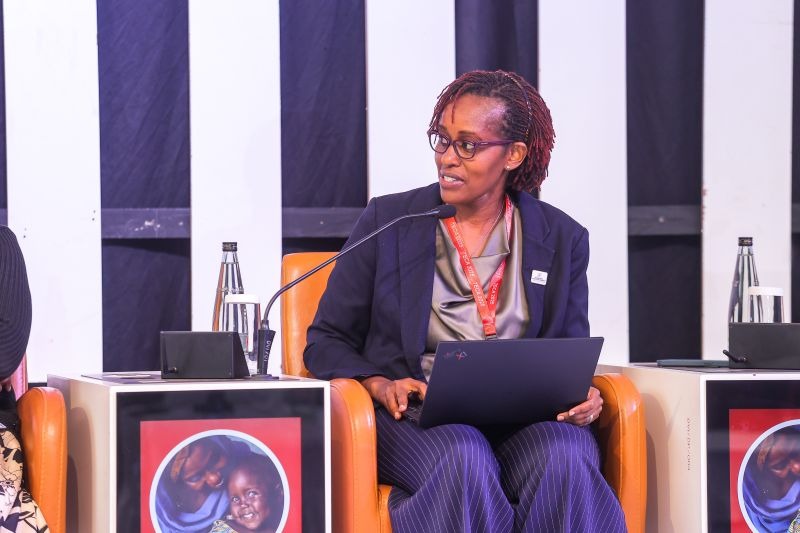MEDIA ADVISORY
Media Contact:
Meghan Quinn, Elizabeth Glaser Pediatric AIDS Foundation mquinn@pedaids.org
Eliza Dryer, Elizabeth Glaser Pediatric AIDS Foundation edryer@pedaids.org
Andrew Hurst, Unitaid hursta@unitaid.who.int
WHAT: The Elizabeth Glaser Pediatric AIDS Foundation (EGPAF) and Unitaid will share promising results from the early routine use of innovative Point-of-Care (POC) technologies for the Early Infant Diagnosis (EID) of HIV in six Sub-Saharan African countries—Cameroon, Cote d’Ivoire, Lesotho, Rwanda, Swaziland, Zimbabwe. The results will be released at an IAS 2017 Satellite Session Event, jointly organized by Unitaid, EGPAF, the Clinton Health Access Initiative (CHAI), UNICEF, and the African Society for Laboratory Medicine (ASLM). This session, featuring presentations by partners and ministry of health officials from Côte d’Ivoire, Mozambique, South Africa, and Zimbabwe will focus on sharing best practices and promising results from research and routine use of POC EID testing.
WHEN: Tuesday, July 25, 2017, 18:30h – 20:30h
WHERE: The Palais des Congrès, 2 Place de la Porte Maillot, Paris, Room 242
WHY: Improving the health and survival of HIV-infected infants depends on a robust system of early infant diagnosis (EID), care and treatment. In 2015, more than 1.2 million babies were born to mothers living with HIV in the 21 UNAIDS priority countries, while only half had access to EID testing. Among infants who were tested, most waited from 30 to 90 days to receive their results from a centralized laboratory. Without early testing and immediate treatment, one out of every three HIV-infected infants will die before their first birthday, with a peak mortality at 2 to 3 months of age, and half will die by their second birthday.
New-to-market, point-of-care early infant diagnosis (POC EID) technology allows HIV-exposed infants to be tested at the clinic and receive their results on the same day, supporting the rapid enrollment of HIV-positive infants on life-saving antiretroviral treatment. POC EID technologies improve and speed up clinical decision-making by making testing more accessible, by increasing the proportion of test results that are returned to clinicians and patients, and by reducing the turnaround time between sample collection and return of results.
EGPAF, with Unitaid’s support, is working hand-in-hand with ministries of health and other key stakeholders to integrate POC EID into national EID systems in nine high-prevalence countries: Cameroon, Côte d’Ivoire, Kenya, Lesotho, Mozambique, Rwanda, Swaziland, Zambia, and Zimbabwe. During the IAS satellite session, EGPAF will share the results from six months of routine testing on POC EID instruments in six of the project countries. In addition, real-time data on POC EID testing in the project countries will be made available through an interactive data dashboard, developed using Microsoft Power BI, and housed on the EGPAF website (pedaids.org/pocdashboard).
CONTACT: To schedule an interview in-person or via phone with a Unitaid or EGPAF expert, or with one of the satellite session presenters, please contact Meghan Quinn at mquinn@pedaids.org or 202-509-2444. You may also contact Meghan to request access to photos from project sites.
About the Elizabeth Glaser Pediatric AIDS Foundation (EGPAF): EGPAF is the global leader in the fight against pediatric HIV/ AIDS and has reached more than 26 million women with services to prevent transmission of HIV to their babies. It currently supports nearly 6,000 sites and works in 19 countries to implement prevention, care, and treatment services; to further advance innovative research; and to execute global advocacy activities that bring dramatic change to the lives of millions of women, children, and families worldwide. For more information, visit pedaids.org.
About Unitaid: Unitaid is an international organization that invests in new ways to prevent, diagnose and treat HIV/AIDS, hepatitis C, tuberculosis and malaria more quickly, more affordably and more effectively. It accelerates access to innovation so that critical health products can reach the people who most need them. Unitaid’s work facilitates large-scale introduction of health products through funding by the Global Fund, the United States President’s Emergency Plan for AIDS Relief (PEPFAR) and by governments. For more information, visit www.unitaid.org.



